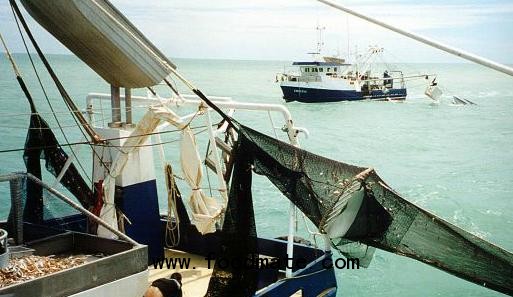The announcement by Mr Burke came only a few days after the Australian government had announced its plans for the world’s largest network of marine parks, spanning 2.3 Million square kilometres around the Australian coastline.
Mr Burke also said the Australian government recognised the economic impacts on the fishing industry that would result immediately, even preceding the July 2014 date set for completion of the marine park plan.
A “fisheries adjustment assistance package,” proposed at AU $100 Million, is to be offered to the affected businesses. However, the Federal Opposition believes that the proposed $100 Million assistance package is not enough to cover the losses of future business in the industry.
Australian Bureau of Statistics data reveals Australia’s major commercial sea fishery products have been rock lobster, prawns, tuna, abalone and pearls. This is apart from the Australian salmon industry, based in southern Tasmania, that has grown rapidly during the past 5 years.
Australia remains a big net importer of fish and fish-based products, despite being the world’s largest island continent.
In mid-2010, Australia’s last cannery, based in Port Lincoln in South Australia, was closed by Simplot when the division was transferred to Thailand.
Tasmanian-based ASX-listed company Tassal, Australia’s largest salmon producer, briefly ran the cannery operation in South Australia to supply the Coles supermarket group. However, Coles now sources its canned fish products from Thailand. This was confirmed by Coles Merchandising Director John Durkan in May
2012 when he said that Coles sources about 90 food lines from Thailand, “the bulk of which are canned tuna and other canned fish, simply because there are no commercial fish canneries in Australia.”
Favourable timing of marine park and trawler ban announcements
Despite the government decisions to make commercialisation of Australia’s sea-based fisheries more difficult, the timing coincides with a global salmon glut. Tassal has warned that the global salmon surplus will probably not improve in the next two years.
Despite both the salmon glut and the high Australian dollar which hampered Tassal’s export opportunities, Tassal still made a respectable profit of AUD $28 Million (US $29.1 Million) for the year ended 30 June 2012. This was down by only 7 per cent on the previous year.








